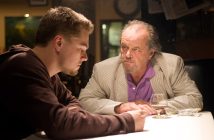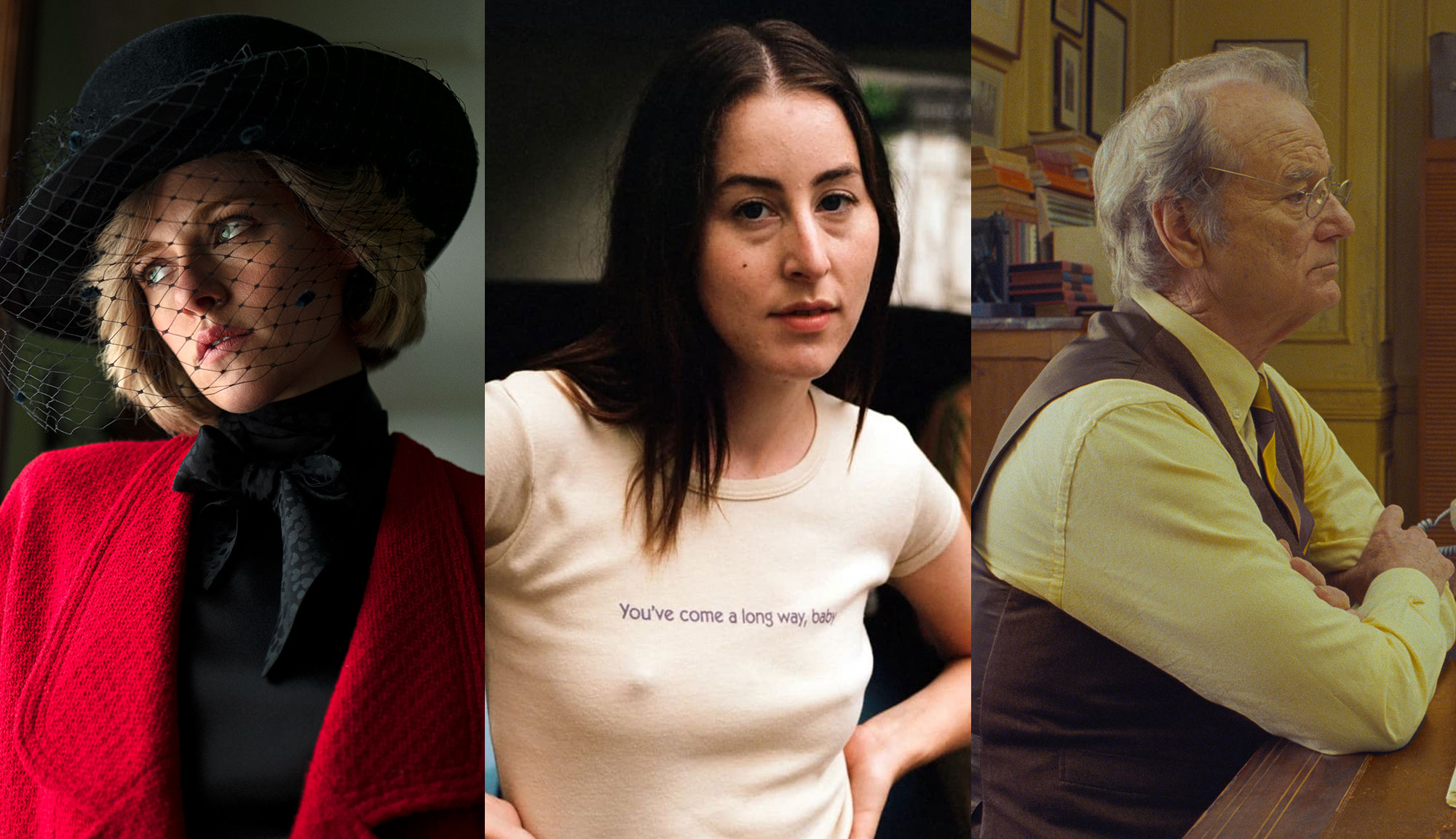
Somehow, we’ve reached the end of a second year in the midst of what seems to be a never-ending pandemic, although one that — with the help of vaccines and booster shots — has at the very least allowed the opportunity to return to the theater for those of us who are comfortable enough to do so. This is the year that saw the release of so many movies that were promised to us last year, whether it’s “F9” or “West Side Story” or “A Quiet Place Part II,” and perhaps because of that, I found myself spoiled for choice with what turned out to be a pretty damned good year in film. It’s hard for that not to be the case when you get new movies from Steven Spielberg, Joel Coen, Wes Anderson and Edgar Wright, and while many of these films were conceived, written and shot before anyone had even heard of COVID-19, its shadow tends to loom large.
I saw a lot of movies this year, and I even saw a good number of the major late summer and fall releases in a theater. None of us can watch everything, of course, and there are plenty of films that didn’t make the cut, but of the year’s major releases, it’s only the Sony Pictures Classic slate (specifically “Parallel Mothers” and “Jockey”) that were unavailable to me by the time this piece needed to be written. Without further ado, here’s my list of the 10 best movies of the year.
Honorable Mention: “Bo Burnham: Inside”
Perhaps the greatest window into pandemic life that we’ll ever see, Bo Burnham’s comedy special/musical/avant-garde film production that he shot by himself in a single room over the course of six grueling months of isolation wonderfully evokes the mania that comes from being stuck during what is theoretically the peak of your life and not knowing when or if life will ever return to normalcy. What is particularly interesting about watching this piece is the mix between the sort of songs and skits that could fit into any comedy special (“Comedy,” “Welcome to the Internet,” “White Woman’s Instagram,” most of which tend to deal with what it’s like to be a youngish adult in the internet age) with what he’s clearly written in the midst of the pandemic (“Content,” “Look Who’s Inside Again,” “Goodbye”). Burnham’s use of lights and camera tricks all controlled within the lens creates some extremely clever dynamism for such a stripped-down premise. Watching him slowly collapse over the course of the film, as his hair and beard grow and grow and his psyche deteriorates, is powerfully compelling. It all culminates in “All Eyes on Me,” a song about the need to be the center of attention and Burnham’s plan to resume doing live comedy that was derailed by the pandemic. There’s more than a little of Pink Floyd’s “The Wall” to be found here, and while its status as a comedy special technically makes it ineligible for my list, to ignore it would be to miss out on one of the most powerful statements on pandemic life.
10. “BENEDETTA“
Paul Verhoeven’s late-career renaissance that began in earnest with “Elle” continues to pay dividends with his follow-up, “Benedetta,” an extremely violent lesbian nunsploitation film vaguely based on the true story of a nun whose visions of Christ lead to her becoming the abbess of her convent and the scandal that followed when she took a lesbian lover. It certainly seems like the perfect fit for him; the lurid sex collides with that particularly violent sense of Catholicism, with its self-flagellation and stigmata and such. The beauty of “Benedetta” lies in the way that it plays with truth and power, as well as the sexual repression of nuns and priests. For the first half of the film, we see the visions of Christ play out in Benedetta’s head, all of them hypersexualized and violent, and without any reason not to, it’s easy to take it at face value. But right around the time that she seizes power and some evidence that her ecstatic truth might be more than a little mixed with lies, the visions stop. We see her continue to act out the experience of these visions but no longer experience them first-hand. It’s all a clever bit of interplay to cast doubt on everything you see, and yet she is still sympathetic in the face of the church and how they handle the investigation into her infidelities. Virginie Efire is so wonderful in the lead role, giving you every sense of every angle — belief that the visions may be real, belief that she’s a conniving fraud and belief that she has the best interest of her town in place as the Black Plague ravages outside its walls. It’s necessary for her to hit these beats to make the script and the story into more than the nunsploitation sex romp the marketing wants you to believe it is. There’s far more going on in “Benedetta,” and Verhoeven’s choice to leave Hollywood could be the best decision he’s made.
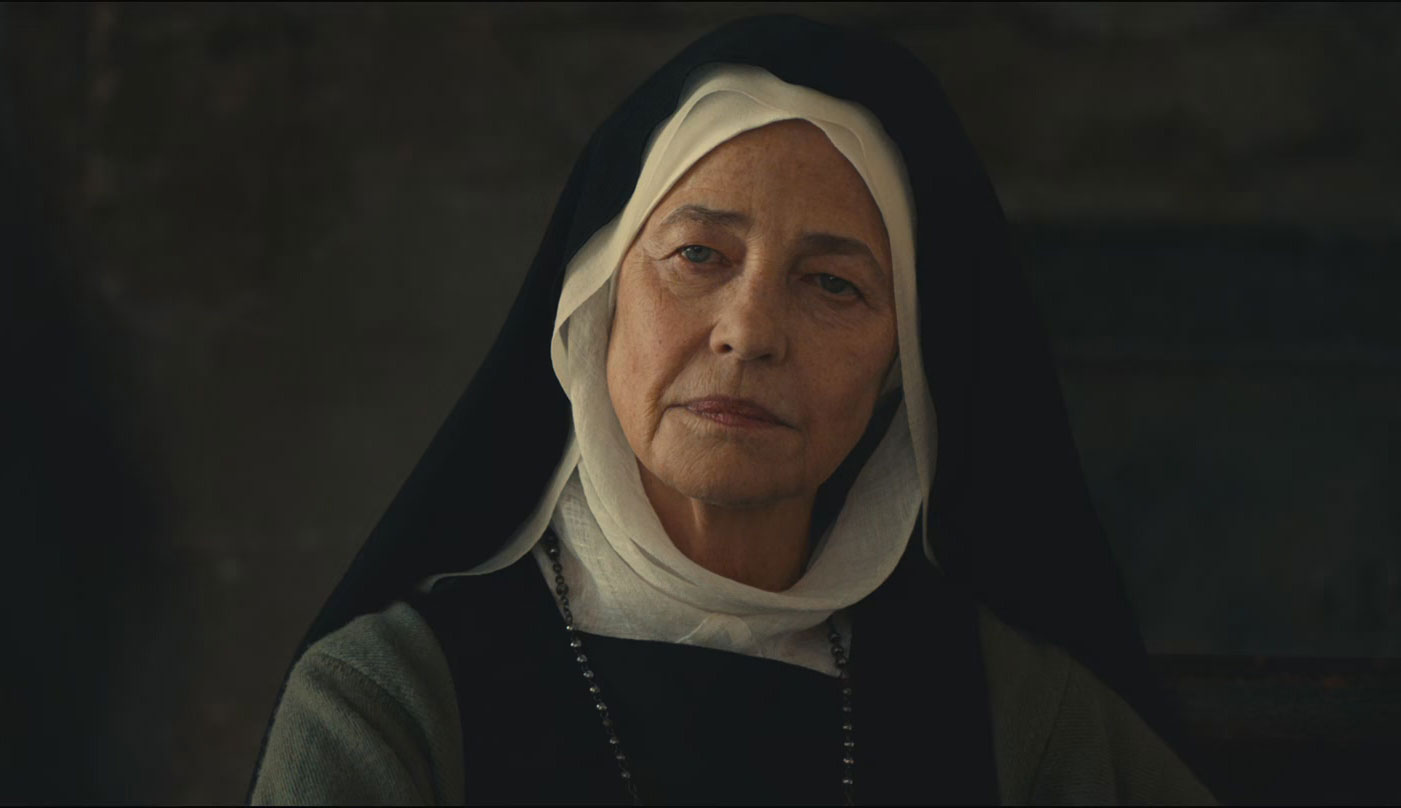
9. “THE HARDER THEY FALL“
I remember hearing about the all-black Western starring the likes of Jonathan Majors, Lakeith Stanfield, Idris Elba and Regina King, and getting irrationally excited about it before losing track of it amid the torrent of festival releases and Oscar plays that tend to dominate the late summer and early fall. By the time it arrived on Netflix at the beginning of November, it was easy to forget it even existed. But if anyone had the pleasure of seeking it out, they learned very quickly that this was not the sort of film that would let you forget it. Co-writer/director/composer Jeymes Samuel grabs you by the neck in the first ten minutes and never lets you go for the remaining two hours. Many have compared this (perhaps somewhat reductively) to Tarantino and specifically “Django Unchained,” and there is a similar sort of rat-a-tat delivery and editing style to the proceedings, but “The Harder They Fall” has so much unbridled energy and swagger that it’s entirely its own beast. Majors continues to be one of the real rising stars of the past few years since breaking out in “The Last Black Man in San Francisco,” and the likes of Zazie Beetz, RJ Cyler and Danielle Deadwyler all bring their talents to the table. The big names of the cast also deliver on their promise, making it one of the strongest ensembles of the year. Samuel has announced himself in a real way here.
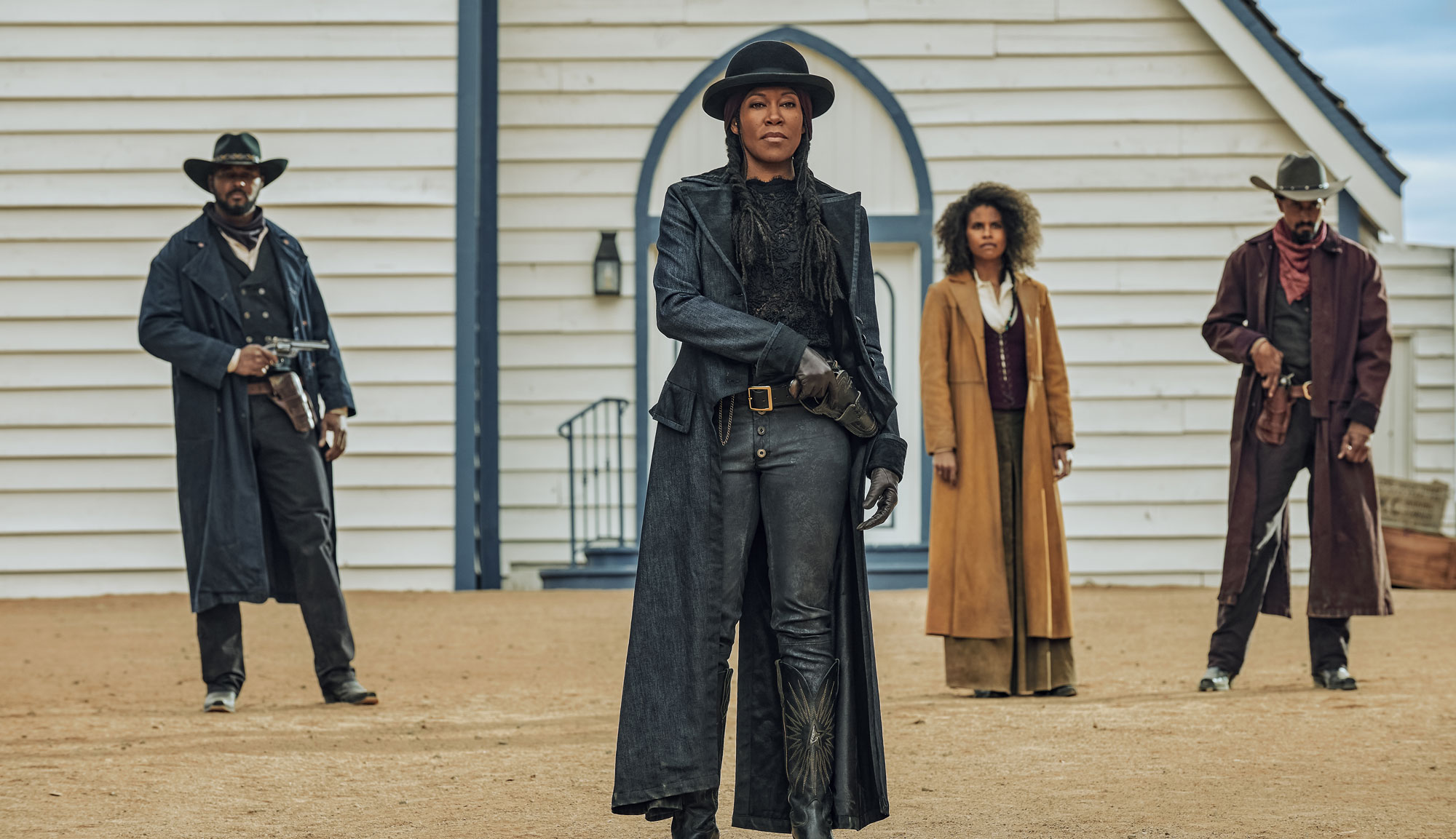
8. “A HERO“
If there’s anyone who can be trusted to craft one of the best examples of realistic human drama, it’s Asghar Farhadi. The creator behind “A Separation,” “The Past” and “The Salesman” knows how this is done, and his newest, “A Hero,” is no different. This time, he follows Rahim (Amir Jadidi, quietly giving the best male performance of the year), a man jailed for his inability to pay a debt who becomes a local celebrity for returning a lost purse containing gold coins to its owner. Of course, we know that the purse was stolen by his mistress in an attempt to pay the debt and secure his freedom, and as more accolades are piled upon him, so too are loose strings. As a local government agent pulls at those strings while attempting to corroborate the claims, Rahim’s desperation grows with every passing moment and unanswered question, with the likelihood that he’ll be sent back to prison turning into more of an inevitability. It’s a classic case study in one man’s attempt to sabotage himself at every angle — his charitable bona fides undercut by his lesser nature. He’s not a bad man by any means but one prone to mostly non-violent misdeeds that otherwise make him unsuitable for modern society. That may be harsh, and “A Hero” certainly seems to agree that he’s getting the short end of the stick. That’s all down to Jadidi, as well as Farhadi’s excellent understanding of the sorts of things that make us reveal our real selves, whether we want them in the spotlight or not.
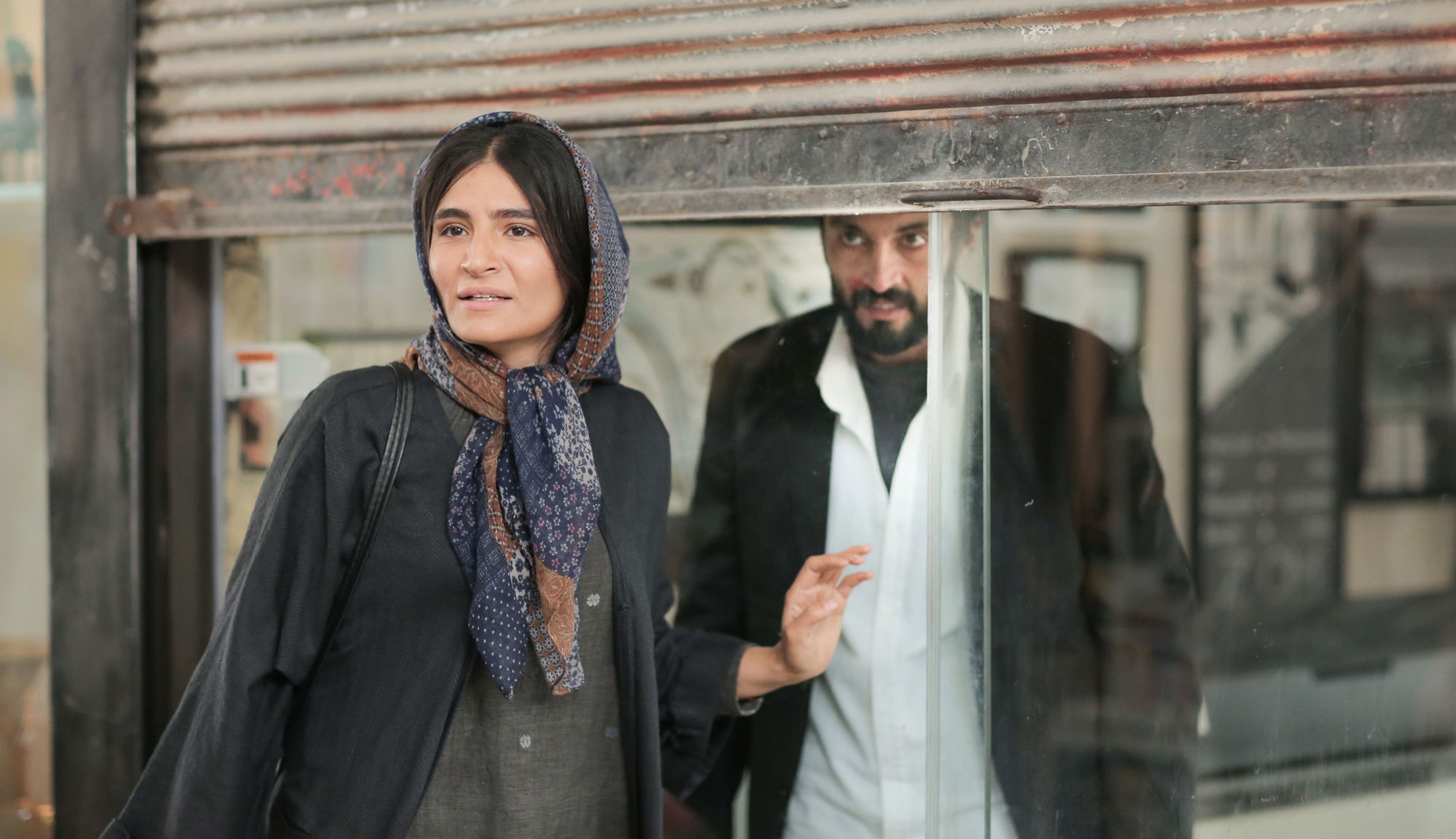
7. “SPENCER“
For the second time, Pablo Larrain has made an engaging biopic out of a tragic figure by focusing on a single event in their lives. “Jackie” was about Jackie Kennedy piecing her life together in the immediate aftermath of the assassination of her husband, and this follow-up (of sorts) follows Princess Diana as she attempts to survive three days of psychological torture at the hands of the Royal Family during their Christmas retreat shortly after she discovered her husband was having an affair. Larrain, working from a screenplay by Steven Knight, imagines this experience as her ultimate prison — a three-day marathon of walls closing in from all sides in the form of prescribed dresses for every occasion, exact times to show up for meals, and endless servants and watchers to tell on her when she takes the tiniest step out of turn. Obviously, Stewart has been the talk of the town since the film was first screened at the Venice Film Festival, and her work is excellent in the way it apes what we know about Diana without simply being a case of mimicry. What she does so well is explore the depths of feeling she has, her status as an outsider within the Royal Family, her desire to reclaim some of her idyllic youth and her love for her two boys, all while her sense of self is being systematically squeezed out of her. But it’s not just Stewart that makes “Spencer” worth watching. It’s Timothy Spall’s menace barely concealed under propriety. It’s Sean Harris’ head chef with a friendly ear. It’s Jonny Greenwood’s score, which somehow manages the discord and unease of Mica Levy’s “Jackie” score. “Spencer” is one of the year’s most accomplished films, with nary a thread out of place, and another case for the continued growth of Pablo Larrain’s career both in America and abroad.
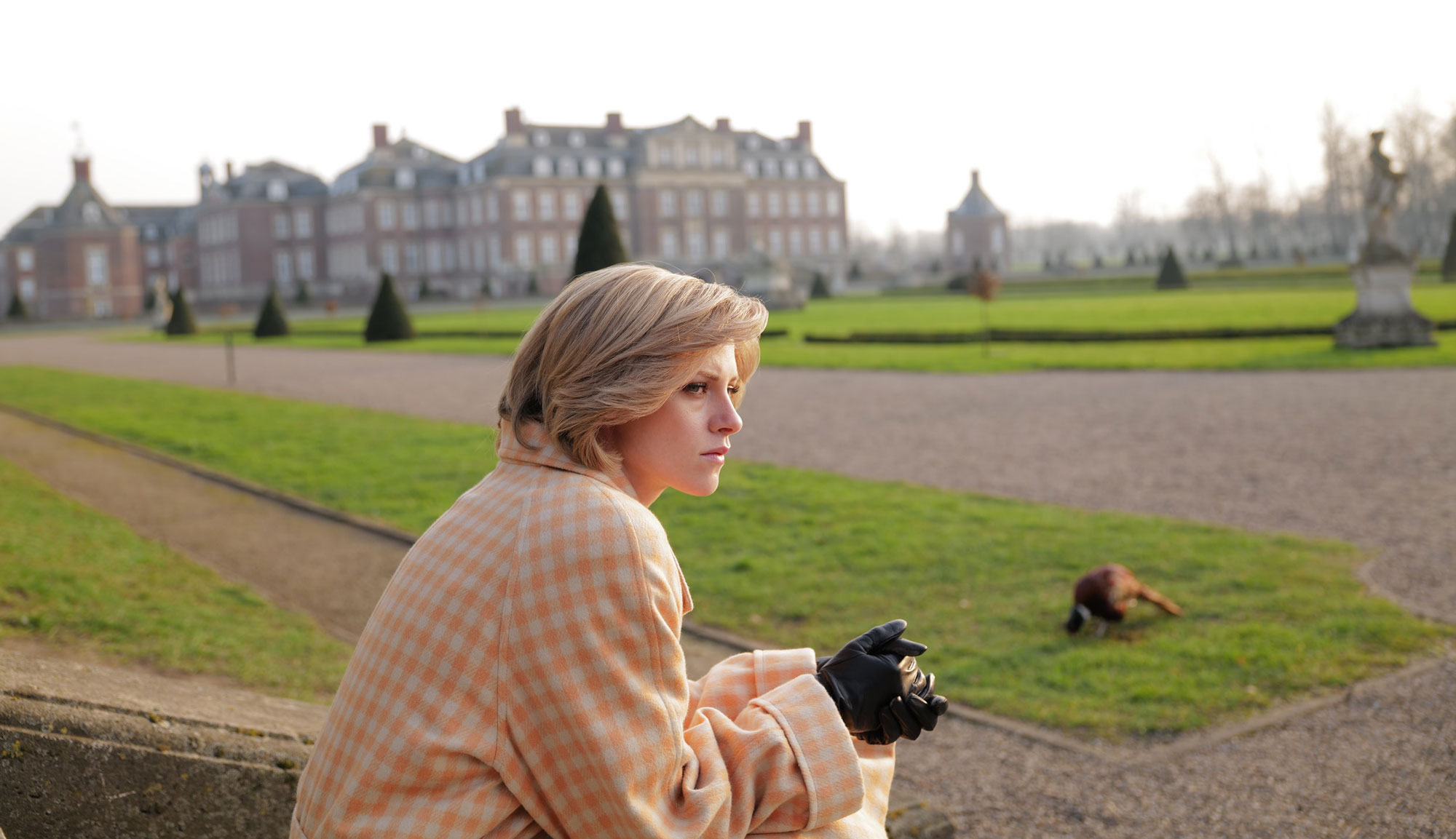
6. “THE GREEN KNIGHT“
It’s strange that we haven’t gotten as many movies about Arthurian stories over the years. Perhaps they’re better suited for series and miniseries, but the one-off tales seem ripe for a good adaptation in the right circumstances. Enter David Lowery, who has made a stately and sumptuous retelling of one of the more famous Arthurian legends — that of Gawain and the Green Knight. With a more-than-game Dev Patel as his lead, Lowery creates a bildungsroman that sees young Gawain reckon with the Code of Chivalry from multiple angles while taking a trip that will presumably end with his death. Equal parts spooky and spiritual, “The Green Knight” works as a series of events during Gawain’s journey to meet his destiny, enhanced by Patel’s intriguing mix of grandeur and youthful recklessness. Lowery’s brought back the majority of his crew from “A Ghost Story,” and while much more happens in “The Green Knight” than his previous film, it’s approached with the same care. But what really sets “The Green Knight” apart is its third act, in which the reckoning of Gawain’s actions a year prior come to a head (excuse the pun). I’ll leave the specifics to those who have seen it, but the way Lowery mounts the end of the tale is so enchanting and arresting that it makes the film one of those experiences you can’t forget.
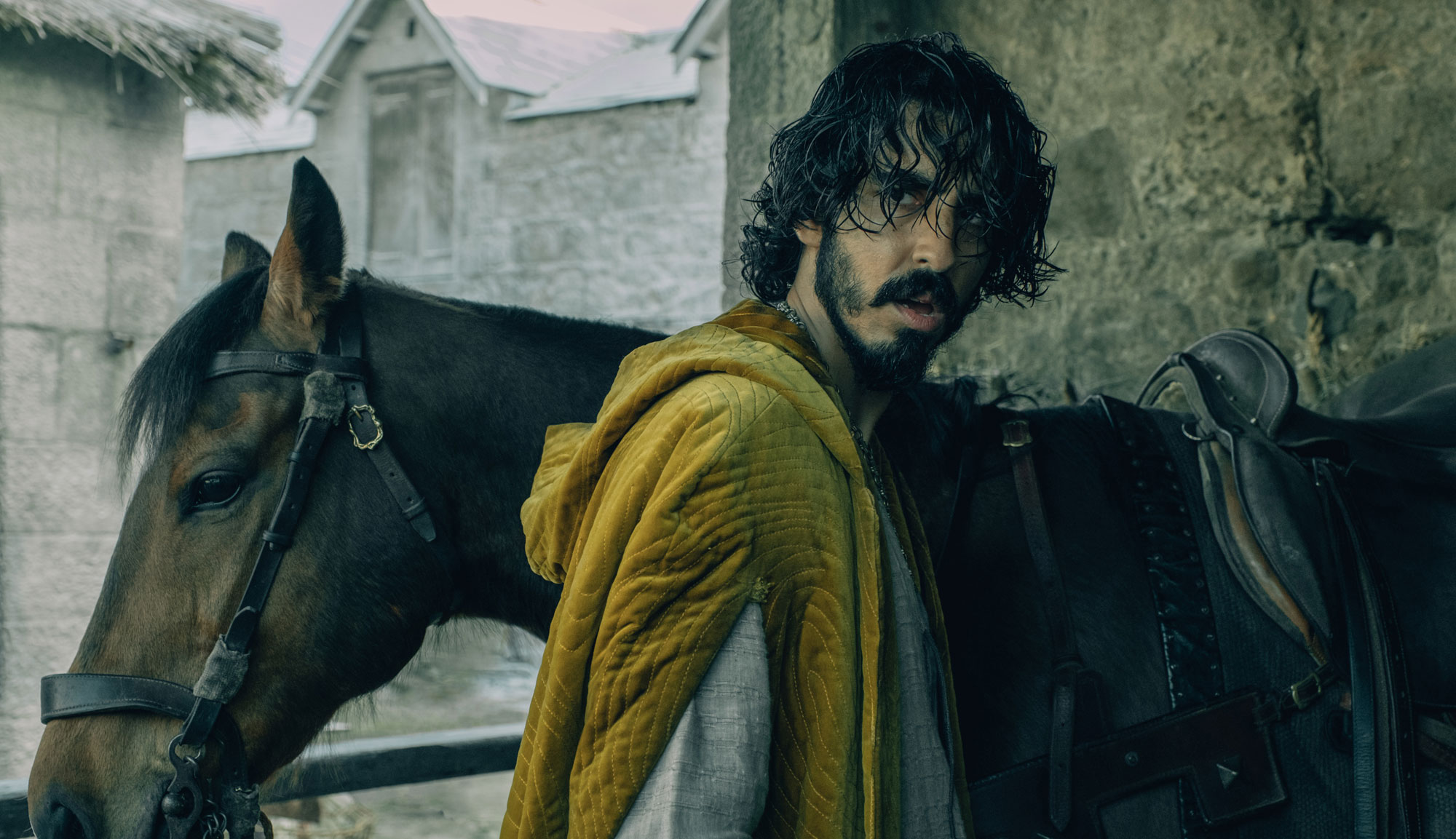
5. “LICORICE PIZZA“
It’s a little disappointing that so much of the discourse surrounding “Licorice Pizza” since its limited release has been focused on the age difference between Cooper Hoffman’s 15-year-old protagonist and Alana Haim’s 25-year-old object of his desire. Especially in a year that features the release of “Red Rocket,” a relatively innocent look at a charismatic teen’s pursuit of the photographer’s assistant who catches his eye at school picture day is downright chaste in comparison. Another shaggy dog tale in a long line of such things, Paul Thomas Anderson’s newest film is a fantastic platform for two unconventional leads: the son of one of Anderson’s greatest collaborators and the youngest of a trio of musician sisters. Hoffman may not have the same energy as dad Phillip Seymour, but here he shows immense promise as the sort of always-on huckster who would have killed it in the gig economy if such a thing existed in 1973. And Haim feels so relatably off-kilter, with no idea what to make of this weirdly charismatic child who won’t leave her alone. It’s great, breezy stuff watching them pinball off each other, and it’s made even greater during the second half of the film when the likes of Bradley Cooper, Tom Waits and Sean Penn join the festivities in endearingly silly cameos. They help flesh out the world of the San Fernando Valley in the early ‘70s, but Cooper and Haim make it sing.
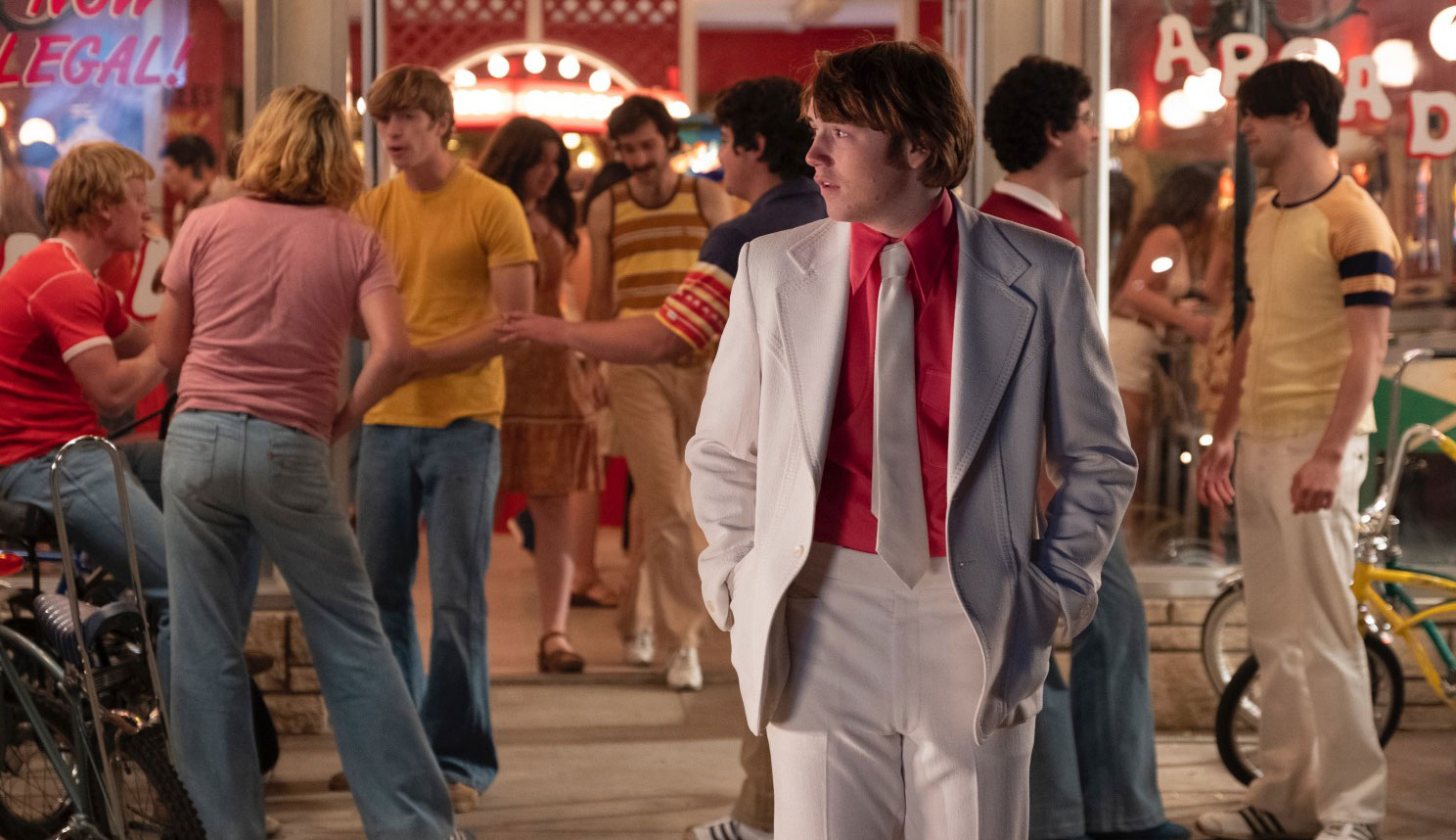
4. “TITANE“
It’s difficult to imagine how Julia Ducournau was going to follow up her explosive 2016 debut, “Raw,” a movie about a vegetarian who becomes a cannibal after she is forced to eat animal meat during a hazing ritual at veterinary school. That movie had all sorts of insanity to it, utilizing shock and body horror to tell a story about leaving home for the first time, the challenges of transitioning to adulthood and learning about your true self. “Titane,” it turns out, is similarly bombastic, with Ducournau weaving a story about a sometimes-serial killer who is impregnated by a car and goes on the run that is secretly about the importance of family no matter how or where you may find it. She has an undeniable gift for depravity that she’s by no means shy about showing off, but the greatness of her films, and “Titane” specifically, is how she never loses track of the thematic content that makes all the gore and body horror worth the toll it takes on the psyche. “Titane” feels like a step forward for Ducournau, which is no small feat considering the quality of “Raw,” but she is somehow even more fearless in her storytelling and more trenchant in the thematic material. And in Agathe Rousselle, she has plucked yet another superstar out of relative obscurity, delivering the sort of performance you could not imagine anyone else pulling off despite never having heard of her before the film starts.
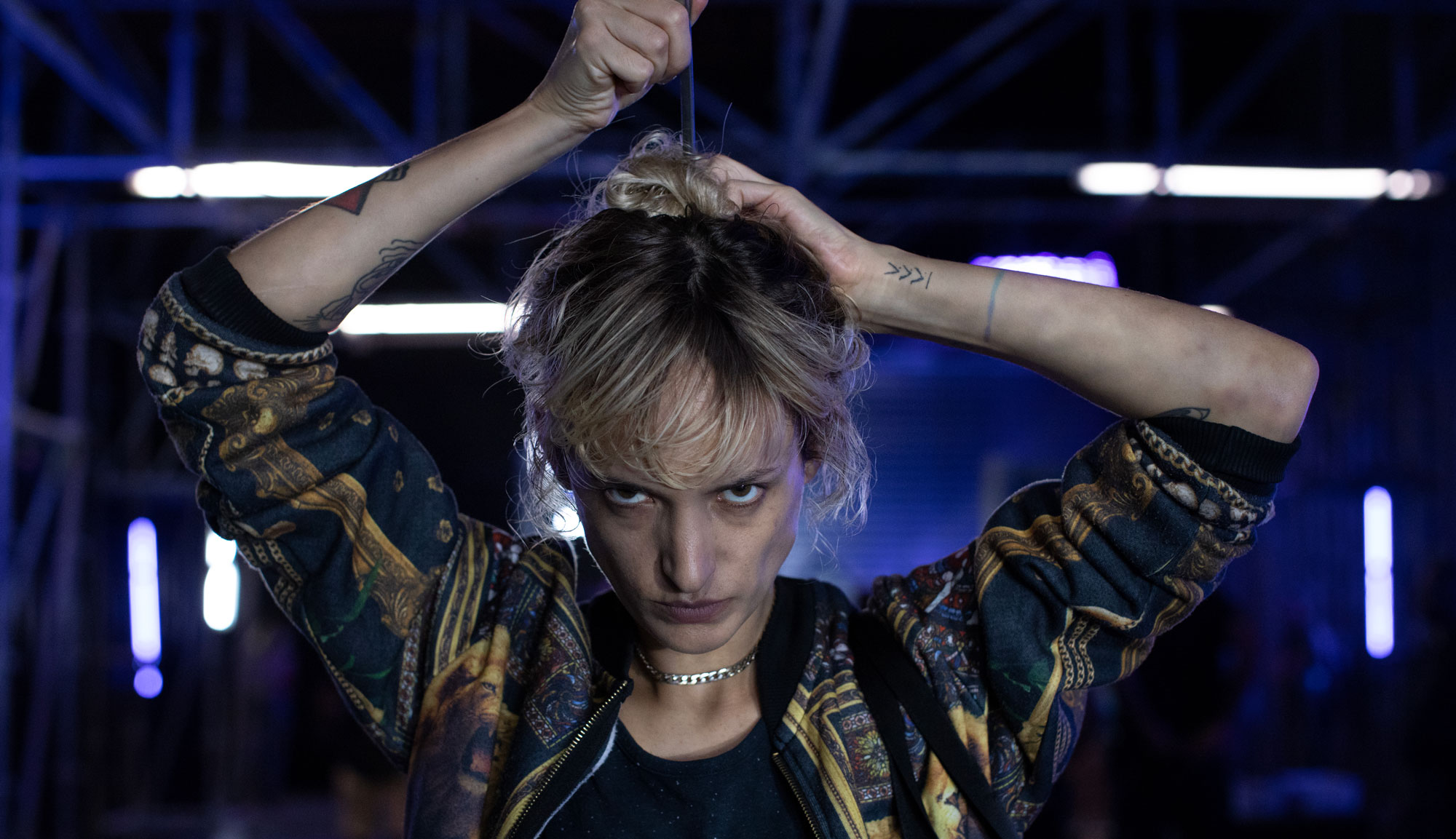
3. “THE TRAGEDY OF MACBETH“
Oh, ho-hum, another “Macbeth” adaptation. “The Tragedy of Macbeth” would have arguably been worth it enough as an opportunity to see Denzel Washington play Shakespeare again (only the second time for those who haven’t seen him do so on stage) and to see Frances McDormand’s icy glare inhabit that of the great Lady, but that certainly wasn’t enough for Joel Coen. Utilizing the Academy ratio and black-and-white cinematography on a soundstage that doesn’t hide its staginess, Coen creates a visual marvel to go along with his tidy retelling of the Scottish Play. Equal parts an homage to Orson Welles’ version and the German Expressionists of yesteryear, “The Tragedy of Macbeth” takes full advantage of the control one has with a soundstage, with the masterful Bruno Delbonnel (who made “Inside Llewyn Davis” look so wonderful) capturing all manner of harsh shadows and piercing beams of light that dance across the unnaturally tall spires, doorways and windows of Castle Dunsinane. Add in Kathryn Hunter’s arresting portrayal of the Weird Sisters (a mix of shadows, reflections and tricks of the light), and you have the sort of classic that reminds you of the everlasting power of the Bard all over again.
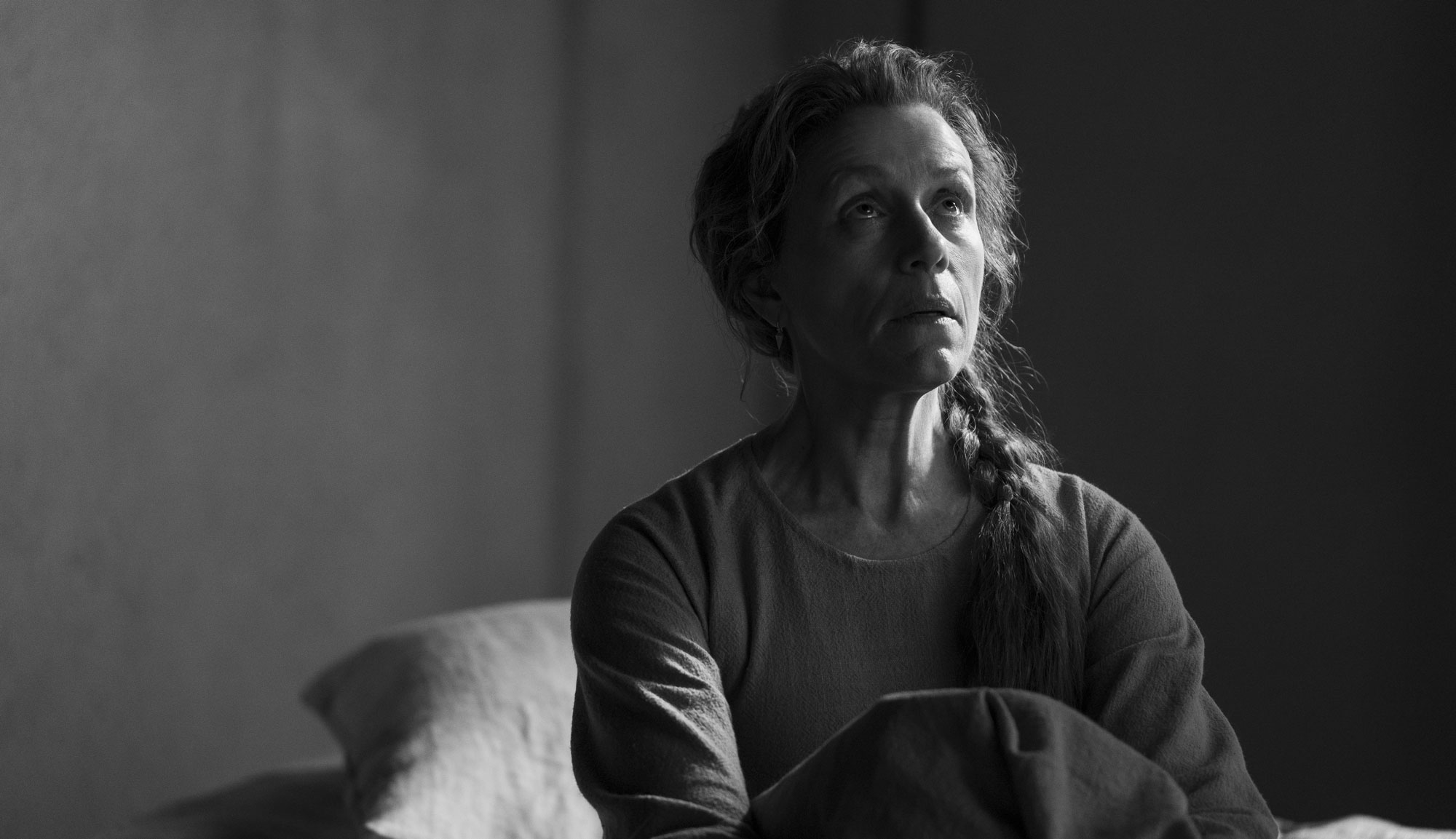
2. “THE WORST PERSON IN THE WORLD“
A rather unassuming Norwegian romantic drama/comedy from writer/director Joachim Trier, “The Worst Person in the World” soon blossoms into the sort of film that so casually and exactingly recreates what it’s like to be in your 20s with no idea what to do or how to make a career in this big scary world. Star Renate Reinsve owns her indecisiveness, realizing one day that just because she’s in med school doesn’t mean she wants to be in med school. As she shrugs off the expectations and challenges of life, bouncing from one idea to the next as jobs and lovers come and go over the course of the film’s 12 chapters, she becomes a proxy for all of us that went through such struggles at the most exciting and daunting times of our lives. Sometimes, it does make sense to shack up with that guy 15 years your senior even if everything you believe tells you it isn’t a good idea. “The Worst Person in the World” isn’t the sort of movie that screams its quality at you — the spell it casts is far more subtle — but by the time you reach its epilogue, Reinsve and Trier have made a film so familiar and touching that its quality as one of the singular experiences of the year is undeniable.
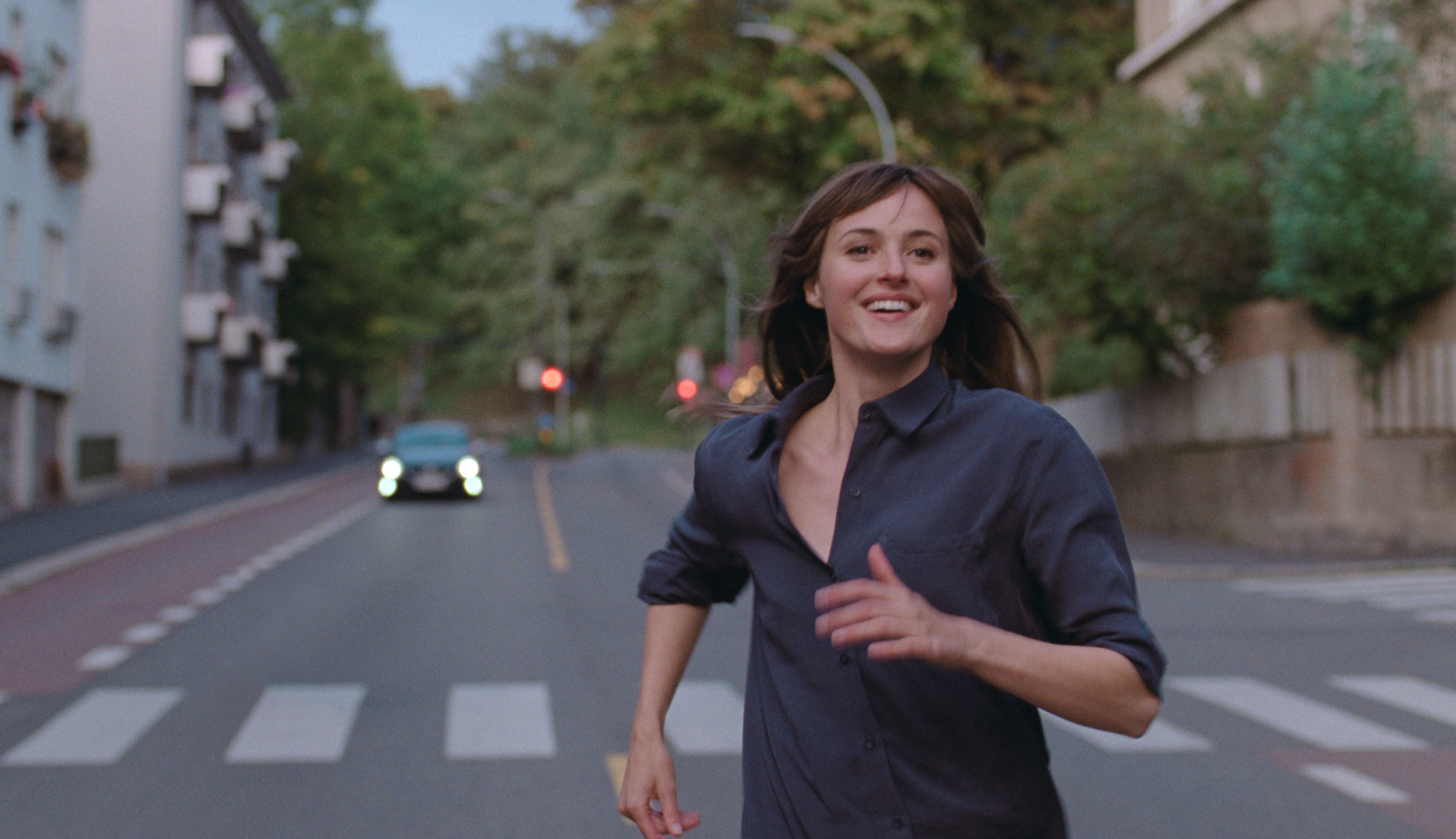
1. “THE FRENCH DISPATCH“
Wes Anderson’s latest is as Wes Anderson-y as it gets — a pastiche of ultra-snooty culture magazines like The New Yorker based out of an imaginary French town called Ennui. The result is an episodic tour of the town and its history through three major pieces covering an imprisoned artist, a revolutionary college student and a police chef that do far more to illuminate the writers than their subjects. In some ways, that makes “The French Dispatch” Anderson’s most personal film in some time; it’s clear that he cares deeply for the written word, especially the delicately chosen words of such a periodical. Plenty of his standby players return here, but it’s the new blood, like Benicio Del Toro, Timothée Chalamet and especially Jeffrey Wright, that makes “The French Dispatch” work so well. By no means does Anderson reinvent the wheel here, but it’s such a perfect version of the wheel (arguably his best work since “Moonrise Kingdom”) and such a diverse one that it’s tough not to fall under its spell. The silly slapstick of the Del Toro segment is wonderfully contrasted with Chalamet’s blowhard seriousness, and the introspective power of Wright’s experience offers some of the most touching work of his career. Many seem to have hastily dismissed “The French Dispatch” as a minor entry in the Anderson oeuvre, but this is essential stuff — a powerful look at writing and how a reporter can become just as much a part of the story as its subject.
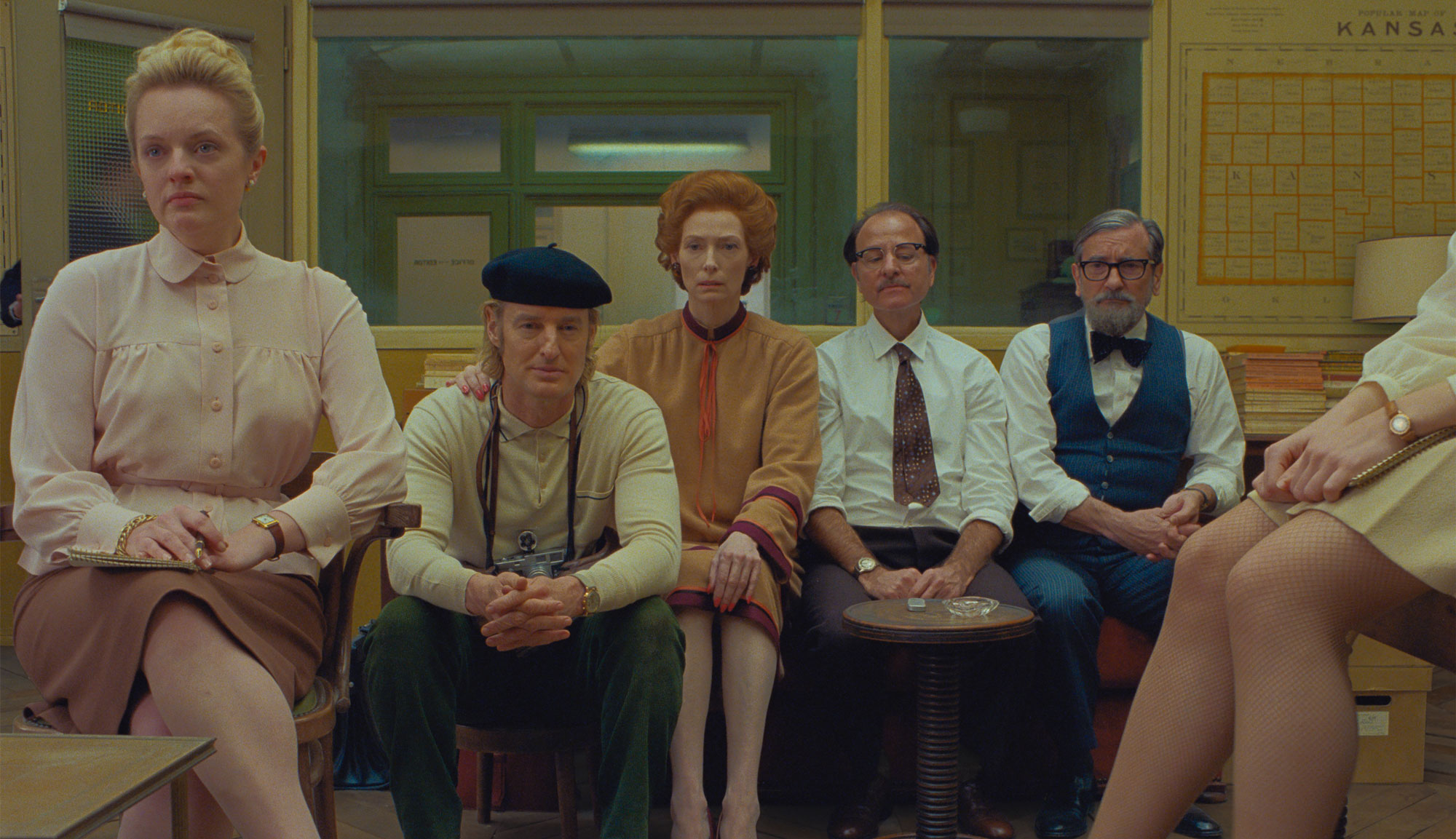
Check out Rob Dean’s 2021 Year-End Movie Review as well for Rob’s picks.
